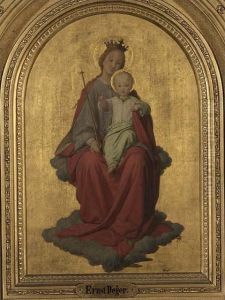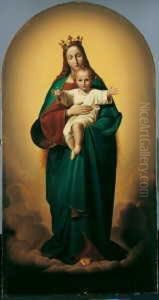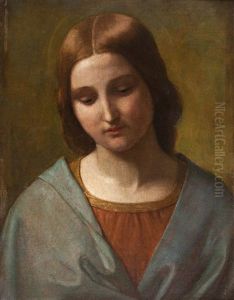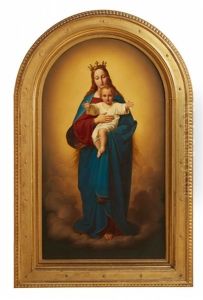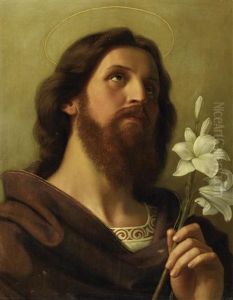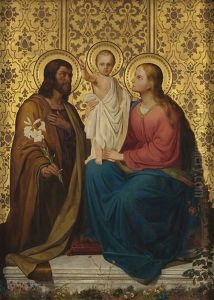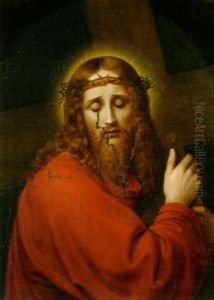Ernst Deger Paintings
Ernst Deger was a notable German painter born on April 15, 1809, in Bockenem, Lower Saxony. He is primarily recognized for his contributions to the Düsseldorf school of painting, a movement that gained prominence in the mid-19th century, emphasizing detailed and meticulously crafted works. Deger's artistic journey began under the guidance of Friedrich Wilhelm Schadow, the director of the Kunstakademie Düsseldorf, where Deger enrolled in 1826. This institution was a critical hub for the development of the Düsseldorf school, and under Schadow's tutelage, Deger honed his skills, particularly in religious and historical painting, which would become his signature subjects.
Throughout his career, Deger was deeply influenced by the Nazarene movement, a group of early 19th-century Romantic painters who sought to revive honesty and spirituality in Christian art. This influence is evident in the devotional intensity and meticulous attention to detail in Deger's works. He was a key figure in executing mural paintings for the apse of the St. Apollinaris Church in Remagen, a project that underscored his commitment to reviving religious art through the principles of the Nazarene movement. These murals, completed alongside fellow artists from the Düsseldorf school, are considered some of his most significant contributions to German art.
Deger's commitment to religious themes did not limit his palette or subject matter strictly to traditional Christian iconography. He also explored themes of mythology and history, infusing them with the same spiritual depth and technical precision as his biblical scenes. Despite this, it was his religious works that garnered the most attention and acclaim, echoing the sentiments of a society that was increasingly looking towards art for spiritual and moral guidance amidst the rapid changes of the 19th century.
Ernst Deger's contributions to the Düsseldorf school and German art were profound. His works were celebrated for their beauty and spiritual depth, influencing generations of artists. He remained a pivotal figure in the Düsseldorf artistic community until his death on January 27, 1885. Today, Deger's legacy is preserved in various museums and collections, where his paintings continue to be admired for their technical precision, emotional depth, and devout spirituality. His role in shaping the course of German Romanticism and his dedication to the revival of Christian art mark him as a significant figure in the history of 19th-century European painting.
